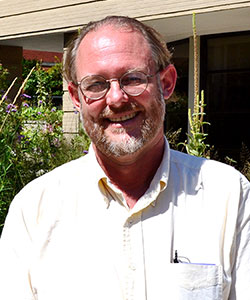Moving forward with alumnus Bruce Barrett, MD, PhD
Most people have probably thought more about research in the past few months than ever before. As scientific research guides us through a global pandemic, we are learning the important role it plays in our daily lives. The University of Wisconsin Department of Family Medicine and Community Health (UW DFMCH) established a research division in 1984 to generate new knowledge to improve the health of individuals, families and communities. Thirty-six years later, Bruce Barrett, MD, PhD, took the reins as the DFMCH vice chair for research to lead the team forward. Dr. Barrett’s role includes oversight of research project planning, looking at funding opportunities, grant proposal and manuscript review, and budget and staffing needs.

Bruce Barrett, MD, PhD – Vice Chair of Research
The Key is Funding
In FY19, the DFMCH Research Team received $8.8 million dollars in grant awards to support research in fields including addiction and substance misuse prevention and treatment, infectious disease surveillance, and systems-engineering approaches for improving ambulatory care. These types of grants, awarded through federal, state and private agencies, are the backbone of a robust research program. As vice chair, Dr. Barrett supports researchers through grant review and submission as they seek funding. It’s a role he is familiar with through his own research pursuits. “It is one thing to be passionate about research and another to get it funded,” said Barrett. “I’m grateful to work with such a dedicated team of researchers, grant managers and administrators who share a passion for primary care research and work together to get these projects off the ground.”
A Passion for Research
Dr. Barrett is committed to doing research that reflects his values as an engaged citizen with interests in environmental health, equity, and human rights. He’s currently site lead and a co-investigator on two studies: Strategies to Assist with Management of Pain (STAMP) and Enhancing Antibiotic STewardship in Primary Care (EAST-PC).
The STAMP study compares ways to help patients with chronic low back pain who use opioids to reduce pain and improve quality of life. Study participants learn mindfulness meditation or cognitive behavioral therapy as alternative ways to manage pain.
The EAST-PC study—a collaboration with the University of Georgia and Georgetown University—studies antibiotic use in acute cough illness (bronchitis). These researchers have recently pivoted to a study aimed at predicting outcomes of patients diagnosed with COVID-19, aiming to help decide whether they can go home, need close follow-up, or hospitalization. Several researchers from across the US have joined the study, whose goal is to develop and validate novel prediction models for progression to ICU care and mortality.
Finally, Dr. Barrett is perhaps most proud of his work with the Mindful Climate Action (MCA) project. MCA is an educational and behavior change program designed to help people decrease their carbon footprints while enhancing their personal health and happiness. “Climate changes pose more risks to health than anything ever has,” said Barrett. “People can live healthier lives while being more sustainable. Riding your bike instead of driving can improve your cardiovascular health and reduce your carbon footprint. Eating more plant-based foods and less meat and dairy is good for you and good for the planet. Reducing your purchasing and energy consumption will help both your pocketbook and our collective aspirations for sustainability.”
Published: September 2020
